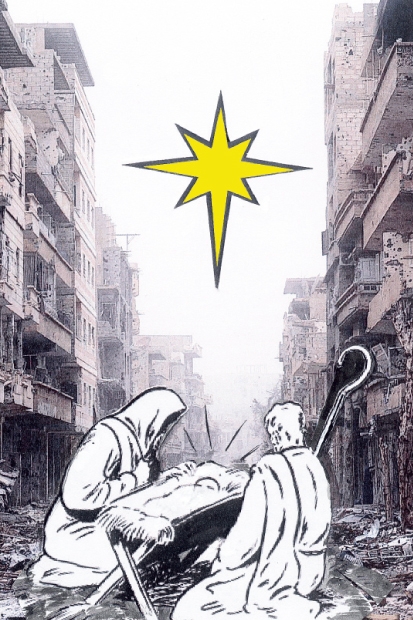Blue and white Christmas lights twinkle over the shops near my apartment in Beirut’s Christian quarter; pricy boutiques display elaborate nativity scenes. But people are having trouble getting into the festive mood. ‘Do you think the war will come here?’ asks my landlady nervously, not for the first time. There is no rush to battle, no electric charge in the air, just a rather depressed feeling among Lebanese that their country can no longer escape the violence over the border in Syria. The black flag of the so-called Islamic State has appeared after Friday prayers in some mosques in the north. The assumption is that Lebanon will be the next place the jihadis target. Still, there are reasons to hope.
Sectarian bloodletting might have begun after Isis and another al-Qa’aeda offshoot, the Nusra Front, kidnapped 30 Lebanese soldiers. Three have been beheaded. Most of the group are Shia and if they are all killed, many fear revenge attacks on Sunnis. I look out of our office window to see dense black smoke billowing up from burning tyres: the soldiers’ families protesting. They have set up camp right outside the Lebanese cabinet offices, tents adorned with pictures of the missing men. The families want the government to agree a prisoner swap with the jihadis. Isis cleverly let them visit the captives. One protestor, Nizam Meghet, told me he barely recognised his brother, a corporal; he’d lost so much weight. ‘We’re here from all sects and confessions, Sunnis, Shia, Druze and Christians,’ said Nizam, a Sunni. An elderly Shia man, with a son held hostage, nodded. So far, the crisis has brought the country together.
The pessimists believe that Isis are stronger after American bombing. That is because the US also bombed Nusra, in most parts of Syria a bitter enemy of Isis.








Comments
Join the debate for just £1 a month
Be part of the conversation with other Spectator readers by getting your first three months for £3.
UNLOCK ACCESS Just £1 a monthAlready a subscriber? Log in